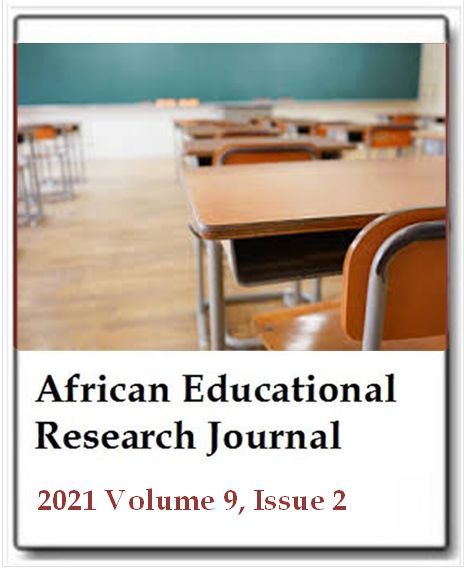Determining students' reflective thinking levels and examining their reflections on science concepts
Serhan BozanAfrican Educational Research Journal
Published: June 1 2021
Volume 9, Issue 2
Pages 544-550
DOI: https://doi.org/10.30918/AERJ.92.21.070
Abstract
The study aims to learn that they want to reflect on their reflective thoughts and reveal how they reflect what they have learned. Reflective thinking, one of the higher-order thinking skills, enables students to learn more easily and permanently. Students with high reflective thinking skills will be more successful both in their academic and social life. A screening model was used in this study. Since we want to describe an existing situation as it is, the screening model has been the most suitable model for our study. The sample of the study consists of the 2nd-grade students of Ağrı İbrahim Çeçen University Classroom Teaching Department. The study was conducted with 59 students selected by a simple random method. A learning diary study was conducted with 10 students out of these 59 students. It is important to develop students' existing potential by determining their reflective thinking levels. This gives us information on how to plan and implement reflective activities in learning environments. The data were collected through the learning diary and reflection papers by analogy. The students were asked to write a learning diary during the first 8 weeks of the science teaching lesson of the primary school teaching department. After the lecture was completed, the students were asked to make an analogy using the science concepts they learned. The analogies were asked to be formed regarding the analogies between the concepts that students learned in the science lesson and their friends. In addition, students were asked to write down the reason why they made analogies between their friends and the science concepts. In this way, the accuracy of their reflections on whether they learned the concepts or not was examined. The data were analyzed using content analysis. The reflection levels of the expressions of the students in the diaries where they describe their learning processes were determined using the method of Moon (2009). In the results obtained through content analysis, it was observed that the reflective thinking levels of the students were at medium level and they did not have high-level reflective thinking skills. In the analogy study in which science concepts were used, 61% of the students did not make conceptual errors while associating the science concepts, while 39% of them had conceptual errors. The basis of misleading about science concepts should be investigated and corrections should be made on this issue. Appropriate techniques and time are needed to develop students' reflective thinking skills. Students should be allowed to reflect on their learning situation. It is known that individuals who can think reflectively are more successful academically. This way of thinking provides convenience to students both in academic success and in social life. Techniques that develop reflective thinking should be given more places in educational settings.
Keywords: Reflective thinking, reflective thinking levels, science teaching.
Full Text PDFThis article is published under the terms of the Creative Commons Attribution License 4.0

